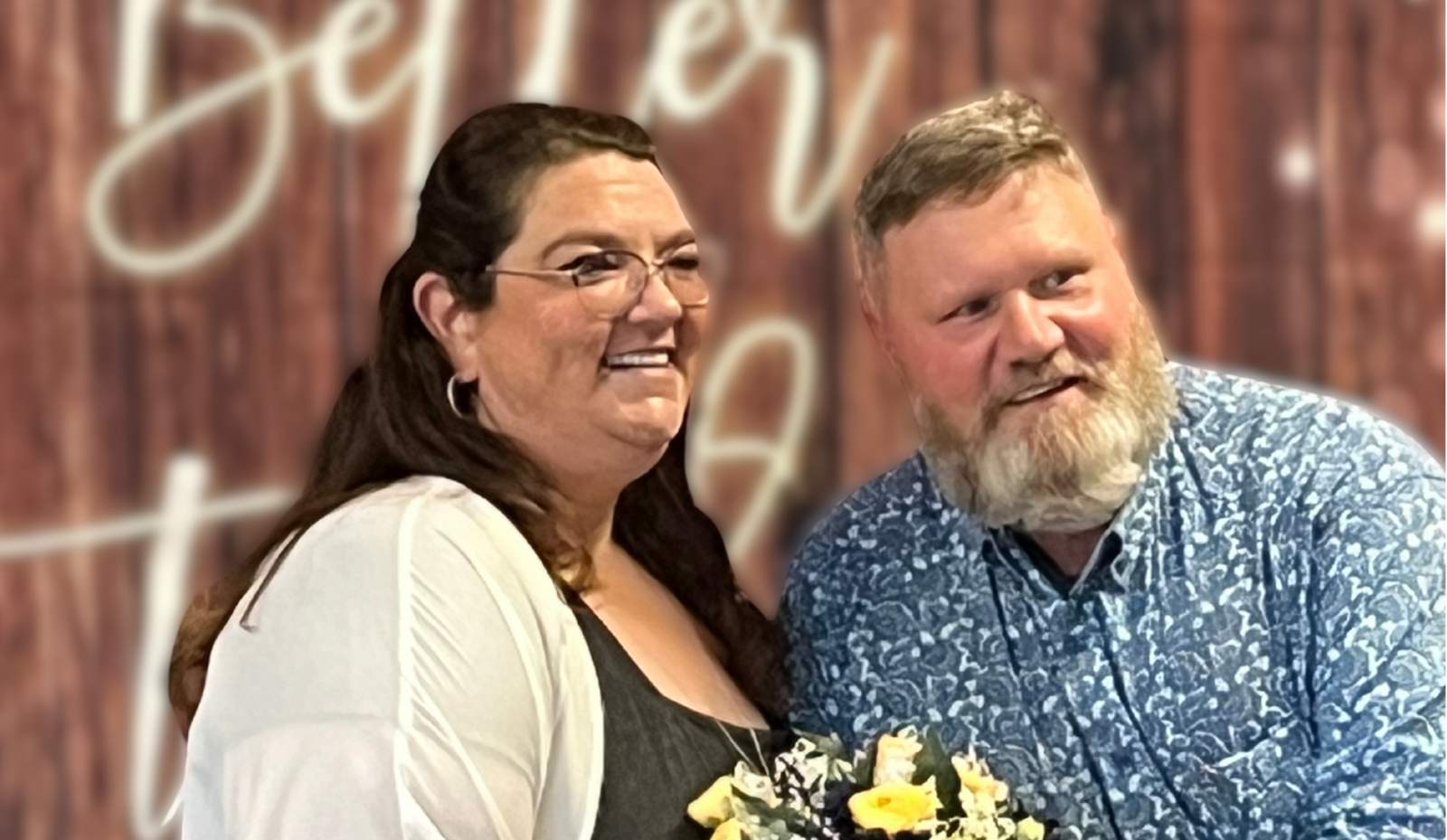This is the sixth part in a series on Eden Village.
Mary Wilson in Eden Village tiny home 7E told me she had a tough childhood and an alcoholic, abusive dad. Leaving a home where everyone was “walking on eggshells,” she built an early marriage on sand: “I was high, he was lonely.” Later, she slept on couches and in cars, then moved into Eden Village, and — at age 41 — met 50-year-old Jimmie Scott from 15W.
Two good things happened in Eden last October 14. First, Wilson and Scott wed in the usually unused community room, becoming Eden’s second married couple. Second, ten of Eden Village’s other 23 residents showed up to hear them exchange rings, promise to share all of each other’s “worldly goods,” and vow to stay married “as long as you both shall live.”

A third development was extraordinary. People become homeless for a variety of reasons, but the common denominator tends to be a lack of family support. Not for Mary on October 14: Her mom, younger brother, two sisters, two brothers-in-law, and assorted nephews and nieces were in the room.
Jimmie Scott did not have relatives there, but he did have a best man, Daniel Creighton, 54, who lives in 12W with his wife Stephanie, 48. On my first day of Eden life Creighton told me he had a happy childhood. On my fourth day he said his mother and alcoholic father divorced when he was thirteen, and he had no contact with his dad for the next twenty years. That’s typical.
Creighton dropped out of school, moved out, and started doing “crank” (street name for methamphetamine). He worked and bought a mobile home that he gutted and remodeled. He and another woman stole two trucks: “I married her so she couldn’t testify against me.” Later came a divorce and prison time.
Meanwhile, Stephanie was freeing herself from a father whom she said was “chaotic and abusive.” Her parents divorced when she was 11. She dropped out after the eighth grade and spent her days and nights drinking, drugging, and partying. At age sixteen she married an 18-year-old and had three children with him, but “he was on drugs and cheating on me the whole time.”
They did stay married for fifteen years, bonding by first snorting meth, then injecting it, then both buying and selling: “It made me feel invincible so I had energy to do stuff. I looked like Skeletor but felt prettier.” After her divorce at age 31, Stephanie was homeless and slept dangerously in parks and woodland. Her diagnosis was similar to that of many Eden Village residents: “bipolar and depressive, with schizophrenic tendencies.”
She had “burned bridges” with friends and family, except for a brother who was “in prison, and has been most of my life.” After several years on the street she met Daniel in 2010: “I felt safe.” In 2020, after living together for about nine years and many ups-and-downs in their relationship, they married.
During my seven days in Eden I saw many individual ups and downs — not surprising given the frequent bipolar diagnoses — but Creighton seemed always even-tempered. Every mature homeless community I’ve visited has an unofficial mayor of some kind, and he is it in Eden. When one resident kicked out for drug use returned last year, Nate Schlueter had Creighton ask him to leave: the ex-resident cussed out the unofficial mayor but eventually left. Creighton understands his task: “Keep the peace, don’t involve cops.”
After the wedding 68-year-old Marie Shayhan, 5W, sat with me in the community room. She has never been married and said she never wanted to be, because she saw how her parents “fought all the time” until her mom died as Shayhan was turning eleven. Her truck-driving dad couldn’t take care of three girls and boy so she went into foster care at age 12 and repeatedly found that her foster parents “cared more about money than kids.” She went to court to become emancipated at age 17, and then worked at KFC and in similar fast-food jobs.
Shayhan said she has twice had a nervous breakdown. She gave birth in 1984 to a daughter who is now 29 and “blames me for a bad childhood, but I did the best I could.” She said she has always feared marriage and many other things, but as long as she takes her sixteen pills each day she’s not depressed. Shayhan is the one person I saw using the big television in the community room. She said, “I like to find out about crimes,” so one morning we watched the show “Forensic Files” together. In a half hour we took in the following: “Dragged April’s body 100 yards to the car…. She was dead from a single gunshot to her face….Treated Justin for four gunshot wounds.” Then came a commercial for Medicare Advantage plans.

